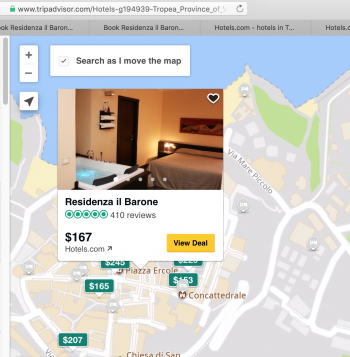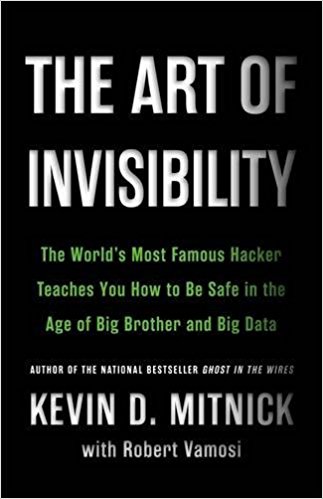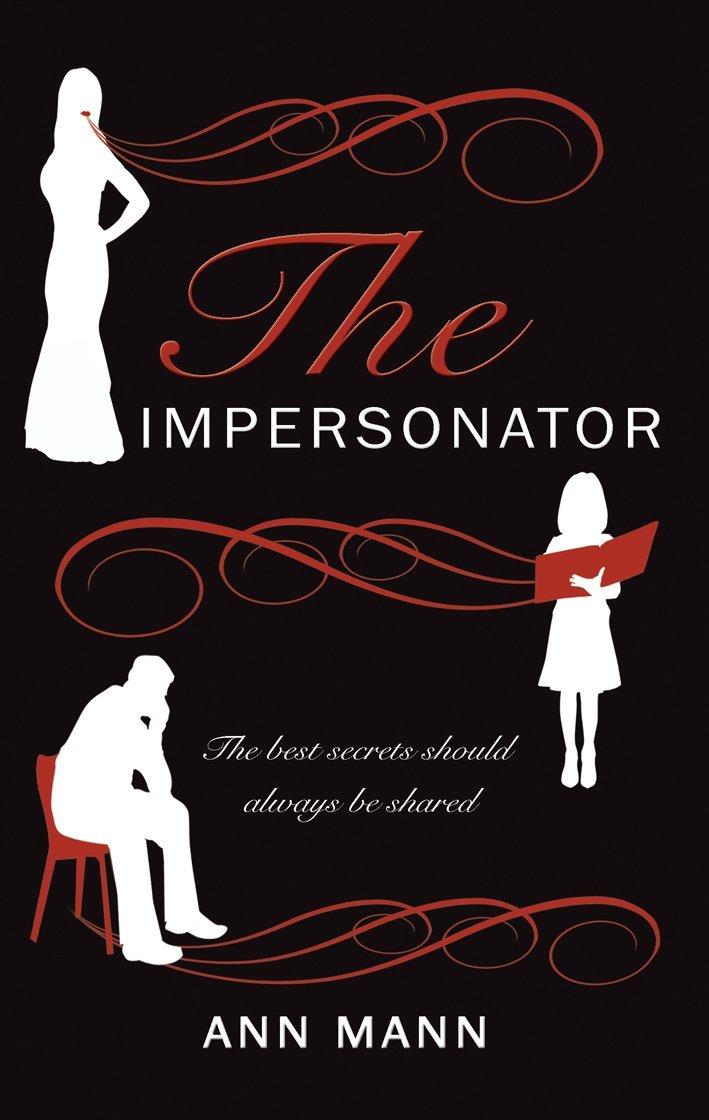Scottevest jacket road-tested and reviewed by Thiefhunters Bambi Vincent and Bob Arno. Bonus: Scottevest is a great carry-on solution for flights with limited carry-on.
Continue readingCliffhanger meal at Aescher restaurant in Swiss Alps
The Aescher Restaurant is a challenge to reach, but what an experience! A glorious hike and cable car journey to a magical destination. Watch the video
Continue readingTripadvisor’s tricky review algorithm
TripAdvisor rejected my review of a B&B in the south of Italy. I shouldn’t have cared, but I did. I had taken the time to advise other travelers about a property that fraudulently promises attributes it does not have or offer. My review of Residenza il Barone in Tropea, Italy, is now posted on this blog almost exactly as uploaded to TripAdvisor, with photos. It’s also posted in a popup here on Hotels.com, the platform on which I booked our stay.
Why won’t TripAdvisor post my review?
Yes, I do care. I want to know what is objectionable about my review. What invalidates it? The replies I have received from TripAdvisor are a baffling series of robot responses that have nothing to do with my review.
We cannot publish your contribution as it does not meet our review guidelines. Please only provide reviews based on substantial experiences you’ve had while traveling and be sure to include enough detail in your review that other travelers will find your advice helpful.
TripAdvisor, July 23, 2019
Wait. I stayed three nights in this place! I wrote substantial things about it! Before I realized I was communicating with AI (artificial intelligence; or artificial idiot), I wrote asking:
Why should Residenza il Barone be allowed to falsely advertise and book an accommodation on TripAdvisor? They claim, but do not have:
Thiefhunter to TripAdvisor, July 23, 2019
• A balcony.
• Air conditioning
• Toiletries.
Then, after another series of nonsensical emails about departments and forwarding and… just look at these, all in different emails:
- “Your request to TripAdvisor has been received…”
- “You replied to a TripAdvisor address that does not accept incoming e-mail…”
- “Please confirm that your received an email from TripAdvisor confirming you that you successfully submitted a review…”
- “We are unable to locate the review in question…
- “We are not exactly sure which review you are pertaining to…”
I finally got more emails that vaguely attempted actual reasons; however, they do not pertain to my situation:
- “We do not allow reviews containing second-hand information, rumors, or quotations from other sources. For this reason, we regret to inform you that your review cannot be published at this time…”
- “We do not post reviews that is not first hand experience…”
To select my hotel in Tropea, Italy, I researched on TripAdvisor. When I found Residenza il Barone, I clicked the View Deal link. I was transported to Hotels.com, which offered only an “apartment” and listed its attributes, including balcony, bidet, air conditioning, breakfast available, and free toiletries. Residenza il Barone is a B&B; it was not clear to me that I was being shown a property that is not, in fact, a B&B.
I booked the “apartment,” understanding that it was in a separate building. However, it did not have a balcony, functioning air conditioning, bidet, breakfast, or toiletries (not even a bar of soap).

Whyyyyyyy should I care about this? The trip is over. We enjoyed Tropea, if not the accommodation. Yet, I continued to attempt contact with a responsible human at TripAdvisor. Finally, from TripAdvisor’s “content integrity department”:
We use an automated filtering system that pulls aside reviews that may require special attention or which are flagged as possibly violating our review guidelines. It appears that your review was flagged by this system because it doesn’t comply with our submission guidelines. As a result, I cannot publish your review — and because our process is proprietary to our business, unfortunately I can’t share any additional details about why your review was filtered.
TripAdvisor Content Integrity, August 1, 2019
TripAdvisor continued to shower me with emails containing useful and relevant (haha) reasons for the rejection of my review:
- “Your review does not meet the guidelines, with that being said, we cannot publish the review…”
- “In order to provide useful and relevant advice for travelers, we do not allow reviews containing second-hand information, rumors, or quotations from other sources…”
- “We do not allow reviews that do not detail a substantial personal experience. As your review does not include any first-hand experiences about the facilities or services of the establishment, we are unable to publish it at this time…”
Whaaaaat? In the end, TripAdvisor advised me that “Your case is being handled by our highly-specialized team…” and “I’m afraid I can’t share information about our investigation process or the automated filters which aid us”.
Needless to say, my frustration had built too much to drop this without learning what triggered the rejection. I tried a phone call. Even that resulted in irrelevant robotic replies. Perhaps I’ll get a call back from a supervisor. If so, I’ll update this report.
Finally, clarification!

Residenza il Barone’s apartment is above the restaurant umbrella, at top center, on the second and third floors.
An eleventh-hour phone call from a supervisor, an actual human one, shed some light. My review used the word apartment and I had put that word in quotation marks. That, believe it or not, was the whole problem.
Apparently, an accommodation called an “apartment” belongs in TripAdvisor’s “Vacation Rentals” section and is kicked out of the “Hotels” section. Obviously though, I want it attached to the hotel (or B&B) that sold me the apartment, in order to advise future travelers.
And, my use of quotation marks signified to the moderators (I say robots, they say humans) that my review includes hearsay.
The supervisor suggested that I resubmit my review simply describing it as a room. Hmmm, that’s tricky, considering that it is precisely the “apartment” that I mean to warn others about. I have tried. I submitted a review today without any quotation marks, and without the word “apartment” (except for one instance I missed!). We shall see if TripAdvisor accepts it. If so, I will link to it.
9/6/19 Update
I sanitized my review and submitted it four more times. (I had missed an instance of the word apartment in one, and some quotation marks in another. In my final submission, I took the content-integrity supervisor’s advice and moved a different paragraph to the top “to trick the filters.” This last one took several days longer than usual to be rejected but, sure enough, it was, for the same old reason:
We noticed that your review for Residenza il Barone may not be submitted to the correct listing on TripAdvisor. A review must relate directly to the business to which it is submitted.
I give up. Especially in light of today’s BBC article, TripAdvisor defends itself in fake reviews row. “…in the case of one hotel in Jordan, TripAdvisor subsequently removed 730 of its five-star reviews.” In other words, TripAdvisor let 730 fake reviews pass through its brilliant AI filters. What chance does my legitimate review have if TripAdvisor’s artificial intelligence determines that mine is fraudulent? “We have fraud detection tools that are far more sophisticated…” said a UK based TripAdvisor official. Clearly, TripAdvisor needs some human oversight with the ability to bypass its filters.

Residenza Il Barone in Tropea, Calabria, Italy. Watch out!
Don’t be fooled into booking the “apartment.”

Ahhh, Tropea! that’s what all the Italians said when they heard that beach town would be the last stop on our journey through the sole of Italy. So beautiful!

It sure is. So popular is Tropea that the B&B I wanted to stay in was fully booked six weeks before our visit. This is the story of a “sister property” switch, a mean step-sister that does not live up to her sterling siblings, and false claims made by the property owner. There’s also a TripAdvisor mystery, which I’ll save for another post.
Bottom line first: when you go to book a room at Residenza Il Barone in Tropea, don’t be fooled into booking the “apartment”, as I was. Let me tell you about the apartment. Its location is excellent, over a restaurant at Piazza Tre Fontane, a few blocks away from the advertised location. You unlock a heavy door and ascend 14 steep stairs. This brings you into a drab and charmless room with adequate furniture: a dining table and chairs, a sofa, and a sideboard. There’s a mini-kitchen, too, with fridge, sink, and stove.

Poor lighting: In all this space, there is ONE lightbulb. The lamp, hanging over the table, was barely enough for me to do my paperwork.

No Air conditioning: The apartment claims to have air conditioning. And yes, it had a portable unit on wheels standing in the room, with an extension cord nearby. (See my photo.) It was 85° (see photo), so we turned it on. Cool air came out the front; hot air came out the large exhaust hose, which was loose on the apartment floor—inside! We went to visit the owner, Roberto. Yes, he said, you have to open the door. So we stuck the wide exhaust hose out the door, leaving the tall door open a good six inches—through which came plenty of heat. In actuality: the apartment does NOT have functional air-conditioning.
No Balcony: The apartment claims to have a balcony. It does not. It has a four-inch ledge. (See photo.)
No toiletries: The apartment claims to have “free toiletries.” It does not. Not even a single bar of soap.

Climb up to bed: The bed is up a very narrow spiral staircase. (See photos.) There are 14 stairs, each 15” wide. If you are anything larger than slim, if you are elderly, if you have the slightest problem with stairs, you will not make it up. You cannot bring a suitcase upstairs. In fact, it’s difficult to carry anything up the tight stairs. Think about this if you usually get up during the night. The bathroom is downstairs.
Hot sleep: There is no air conditioning upstairs. (Not that there is any downstairs, either…)

No breakfast: This is not a B&B. There is no breakfast.
Residenza Il Barone gets consistently good reviews. Watch out if you are routed to this B&B’s apartment as an alternative. It’s not in the same league and is sold with false claims.
Even more strange is TripAdvisor’s response to my review. I’ll write about that next.


The Art of Invisibility, by Kevin Mitnick, reveals how data on us is gathered
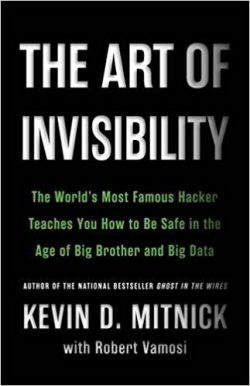
Our Data, Our Selves
They know who you are. They know what you buy, where you live, where you work, where you go in between. They know your most intimate secrets, not because you told anyone; they simply put the clues together and joined seemingly unrelated tidbits. Your shopping history, your online searches, words used in your email, the cell phone towers your phone used, even how fast or slowly you type. Combined, it all points to you. You leave data dribbles like greasy fingerprints to be dusted, collected, identified, and assembled.
By now we’re all used to being tracked and spied upon. We pretty much accept it, most of us. We know our web-browsers act as spies and report our every move. Our credit cards and loyalty cards provide a treasure trove to someone (but who?), and our cell phones even more. We’re spied upon even with the cameras and microphones built into our own computers and cell phones. What can we do but shrug our shoulders and give up?
We’re vigilant about not clicking on spammers’ links, we’ve learned to look for “https” URLs when we make online payments, even to recognize spoof emails. But enough is enough, right? We have to live life! Today’s technology is as vital as food and water and we have to use it. Who can spend time worrying about all this info-gathering, especially since it’s invisible, and does not present an inconvenience. Forget it. That’s life. Move on…
Or…?
Trade-offs
We constantly and willingly give up our data for something in return. And it seems like a fair exchange: handing over data is painless; the benefit is all ours! We get free stuff, convenience, points, discounts, rewards, elite status, the privilege of using a “free” app… [Warning: rant coming…
WhatsApp is my pet peeve. Many, many of my friends and colleagues, even those in the security business, use it. And what’s the first thing the app does after you download it? “WhatsApp would like to access your contacts.” “OK,” you say and—whoops!—there they go, all your contacts, including my info if I’m in your address book (and I’m not even a user!), against my will, handed over so WhatsApp and facebook can “share information with third-party providers,” in other words, so they can sell my personal info. Thanks, friends. Yet, prominently, ironically, WhatsApp proclaims on its site “Privacy and Security is in our DNA.” Okay, its messages are encrypted, but what’s private or secure (or honest) about sucking up all the contacts of a naive user? True, WhatsApp is not the only app that commits this surreptitious theft of information. Uber is another. But, I digress. …Whew. Okay, end of tirade.]
Where was I? Trade-offs. Security is a trade-off which costs us in convenience, simplicity, expense, dignity, time, and much more. Wouldn’t it be swell if we didn’t need passwords, locks, or TSA? But we do need these, obviously. Luckily, the average person can deal with the minimum required amount of security.
Privacy is another matter though. We can shut our curtains but… do you have tape over your webcam? Put your birthday on facebook? Unknowingly hand over all your contacts’ info to What’sApp or some other software company? Use a credit card, loyalty card, agree to “our terms and conditions”? Yeah, privacy is pretty hopeless nowadays. If you browse the internet or use a cell phone, you’re being tracked. Not only tracked, but micro-tracked. Data about you is collected at every turn, codified, traded, bought, sold, and used to build a scarily detailed dossier—which is also bought and sold. It’s your data shadow; it sticks to you and grows as the minutes pass, like the setting sun’s lengthening silhouette attached to your feet.
In fact, data you enter on some web forms, for example Quicken Loans’ Mortgage Calculator, is sucked up even before you give it permission by clicking “submit.”
The Art of Invisibility, by Kevin Mitnick
To avoid being tracked, to stay under the radar and off the grid, to be invisible, is a huge trade-off. A Sisyphean task. Kevin Mitnick lays it out in his book, The Art of Invisibility, step by step. And he should know, having evaded the FBI for two and a half years before he was arrested and imprisoned for five years. Remember “Free Kevin”? I highly recommend Kevin’s entertaining and page-turner previous book, Ghost in the Wires: My Adventures as the World’s Most Wanted Hacker.
Entertaining, The Art of Invisibility is not. Page-turner…uh-uh. But it is fascinating, and after a good primer on the basics, goes into technical detail that might be more interesting than useful for many of us ordinary people. For every scary spy technique revealed, Mitnick tells us how to avoid that particular trap. They’re not easy to thwart—short of living in a cave secluded and self-sufficient, it’s a lot of work. As in, huge trade-off. And Mitnick tells us repeatedly: we will make a mistake. We will trip ourselves up. That’s how hackers and leakers are discovered. They make some tiny mistake that allows them to be traced and their identities revealed. But most of us don’t really want or need invisibility. We just want to avoid the obvious pitfalls and take, at least, the easy precautions.
Mitnick tells us there’s much we can do easily, and tests we can run to see just how vulnerable we are online. We should do as much as our tolerance allows, up to our own personal trade-off limit. You lock your car, right? Do you use a LoJack? You lock your home. Do you have a security system? Do you use it? Do you have iron bars on your windows? We’ll each go to a certain level, then hit our quitting point.
Simple, important steps include turning off location-sharing, blocking pop-up windows, deleting cookies, killing super-cookies, using end-to-end encrypted messaging, and many, many more.
But to truly reach online invisibility, Mitnick addresses three large categories: hide your real IP address; shield your hardware and software; and defend your anonymity. The hoops one must clamber through for each of these are many and challenging.
You can hide but you’ll still be seen
Offline is another matter. How many times per day is your photo captured by surveillance video or someone’s ordinary camera? What might they do with it? Are people flying drones over your house? Retailers can now capture the identity of your cell phone when you enter their store, and look up all kinds of details about you. So can law enforcement, in large crowds of protestors, for example.
Facial recognition software is in use in some places, namely churches, to log your attendance, and not necessarily with your knowledge or permission. (Fix: wearing special, light-emitting glasses.)
You’re tracked in multiple ways and recognized using almost every form of transportation (bus, train, subway, taxi, your own car). Uber maintains your ride history; and that’s nothing compared to what Tesla knows about its car owners. And get this: if you take a subway train, the accelerometer log on your own cell phone can be matched to the subway line you took and exactly where you boarded and debarked. Is that creepy, or what? (Fix: drop out of life entirely?)
Have a voice activated TV? It’s listening for your command; what else does it hear, and where does the speech it records go for recognition? Use Siri, Alexa, Google Assistant, or one of those voice-recognizing gizmos? They’re always on and listening; how secure are they, and who’s eavesdropping? Where does the recording go for artificial intelligence interpretation and how long is it stored?
What do you have connected to your home network? Lighting, doorbell, thermostat, baby monitor, pool control, security system, door lock, webcam, refrigerator? The Internet-of-Things (IoT) is most troublesome, because most of these peripherals you control with your phone or tablet are not built for security and are not patched or updated. A hacker can use these convenient connected systems to gain access to your entire home network. (Fix: live in a cave?)
“To master the art of invisibility, you have to prevent yourself from doing private things in public.”
Need to conduct personal business while at work? If you want it to be private, don’t use company computers, printers, or company issued cell phones. Use your own, personal device, and use your own personal cellular data network, not the company wifi. Actually, don’t use any other wifi, devices, or printers, including the library’s or the copy shop’s. They all save logs and PDFs of documents you print that you can’t delete. Your data crumbs are dribbled everywhere by default; actively preventing the leakage is not easy.
(A top secret foreign military unit recently hired Bob and me for training. But because of the insecurity of communications, and because Bob and I, mere civilians, did not have access to a “cone of silence,” the group flew us overseas without even telling us about our assignment. That’s military-grade security.)
I got a special kick out of the beginning of Chapter Fourteen. Mitnick describes a harrowing incident in which he was detained for hours by customs agents upon flying into Atlanta from Bogatá. Bob and I had also flown into Atlanta at the same time, and were to speak at the same security conference, the American Society for Industrial Security (ASIS). We were waiting for Mitnick at the airport… and waiting, and waiting. We finally left without him, and learned late that night what had happened to him, which you’ll have to read the book to find out. He was cool but shaken, if one can be both of those at once, and angry because he was unable to prepare properly for the panel he’d be moderating in the morning.
Mitnick lays out the pitfalls and tricks of returning to the U.S. from abroad, and how to keep your data out of the hands of curious Customs and Immigration officials. He explains in great detail how to use a Tor browser, a VPN, and Bitcoin to set up anonymous browsing; oh, and first turn off your home network, use a separate computer (which you purchased anonymously with cash), change your MAC address, use a personal hotspot on a burner phone (purchased anonymously), stay on the move, and remember not to check Facebook or your personal email. I skipped some steps, but you get the idea.
Know the difference between the Surface Web, the Deep Web, and the Dark Web? Mitnick explains all that, and why a law-abiding citizen might have a legitimate need to browse anonymously. If you really want to do it, all the steps are detailed. It’s a lot of work. And, as Mitnick emphasizes, a nanosecond of lapse will blow it all completely.
One thing Mitnick does not address in The Art of Invisibility is healthcare. I wonder how he would get medical treatment if he were trying for invisibility today? How did he do it when he was on the lam in the 90s (though things were much different way back then)?
I have to ask him that. If I can find him…
Four Seasons Hotel Perfection—Hotel Oddity #47
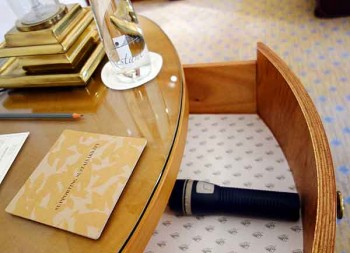
What has the Four Seasons Sultanahmet in Istanbul not thought of? I’ve already written about its coffee delivered with wake-up call, a practice worthy of its own little post by thiefhunters. There was so much more.
Four Seasons Hotel perfection
The flashlight was a nice touch. The bedside drawer was ajar when we arrived to alert us to the availability and location of the flashlight, which rested on fleur-des-lis drawer liner to match the fleur-des-lis rug. Never mind that we all have flashlights built into our smartphones. But… is the Four Seasons hinting to frequent power outages? Or do they know that a flashlight beam makes it so much easier to find a dropped contact?

Instead of the old Mr. Coffee, our room had an espresso machine. When we had our coffee in the afternoon, it was accompanied by a sampler of perfect baklava which had appeared on our table.
The fruit bowl was particularly beautiful with its luscious appealing bounty. Even more so was the plate of fat fresh figs we received later.

Breakfast in the gazebo-like greenhouse in the hotel’s courtyard was simply the best. The choices, the quality, the ambiance, the service, were all top notch. There were gorgeous local cheeses paired with a variety of golden honeycombs, wonderful olives, Turkish simit, the sesame-covered bagel-like bread.
In the bar we had a variety of unique cocktails, traditional Turkish tea, and raki, the aniseed-flavored Turkish liqueur, similar to the better-known ouzo. The presentation of all the drinks was just… perfect.



Beautiful presentation of raki, the local anise liquor, to which water is added.
Venetian glass beads, blown live in Venice studio

Serendipitous finds are one of the joys of travel. In Venice, the rule is wander, get lost, and head away from the unbearably crowded tourist areas. Doing just that, I found Moulaye Niang’s tiny glass studio by accident, and what a gem! If handblown glass is the embodiment of Venice, these glass beads are the perfect, beautiful (and affordable) way to take home a piece of the fragile island.
Moulaye sits at his little worktable blowing small miracles. When I came in, he popped up and dragged me out into the sunlight, spinning a freshly molten bead on a metal rod. It was black and smoking. Watch, he said, turning the rod. Blue began to emerge, then streaks of red and swirls of yellow. Within minutes, the black blob cooled and metamorphosed into a gorgeous work of art.




Back inside, it was hard to choose among the strung necklaces. Moulaye’s partner is responsible for designing necklaces with his beads, and her combinations are stunning. But there’s also a big tray of unstrung beads. If you can pick one, she will string it into a necklace of her design—or yours.
Many of the necklaces have “two possibilities,” as Moulaye put it: in a short style, or a totally different long style. I’ll let you visit the shop and see for yourself what that means.
Venetian glass beads
Moulaye, from Dakar, studied glassblowing with the masters on Murano. His Venetian glass beads are inspired by nature. They are exquisite, and very affordable. Not cheap. They’re the perfect Venetian takeaway or gift that will be prized forever. All you have to do is find the shop!
Muranero: Salizada del Pignater 3545, Castello, Venice.
![]()
Kajsas fish soup, Stockholm
Kajsas fish soup

I dream of Kajsas’ fish soup! Since I started visiting Kajsas Fiskbistron (fish bistro) in the 90s, I always order only that. It’s a hearty red broth stocked with fish like a dude ranch pond. Miraculously, the large tender filets are boneless.

When you order, you say yes or no to additional spoonfuls of cooked shrimp (yes!), shelled mussels (yes!), and aioli (absolutely!). Then you add your own double-dollop of harissa (spicy Moroccan chili paste) (essential!). Feast in a bowl!
The free “salad,” on my last visit a few days ago, was shredded napa cabbage, a nice, crunchy complement. I seem to remember other simple salads on other visits, but you don’t go for the salad. Bread is included, and so is water.
You can order other seafood dishes, but why? Plenty of tasty choices are on the blackboard menu, but only a few people seem to order them. They must be frequent visitors who work nearby. Just get the fish soup and swoon. There’s a bar, too, so you can have a beer with it if you like.
Located inside a top-quality food hall, Kajsas must source its fish from the neighboring seafood dealers—I’m presuming here—or maybe the restaurant buys from the same fishmongers the neighbors do. Regardless, you imagine you’re eating the fishermen’s own stew.
I love the atmosphere, even though the place is indoors, underground, in a market, with a giant, shiny Patagonian toothfish staring at me from between the octopus and baby squids in the glass counter across the aisle. It’s not romantic or scenic or high-design—just authentic, unpretentious, and efficient.
Kajsas Fiskbistron is in Hötorgshallen, in Hötorget, Stockholm. Take the escalator down to the food hall. Fish soup is SEK 90, about $14 with everything (at today’s exchange rate).



Pickpocket-proof clothes
Pickpocket-proof clothes. The pros discuss the pros. There aren’t too many cons, except for those we foil wearing pickpocket-proof clothes.
Continue readingThe Impersonator: Double Duplicity, Innocence, Intrigue
Film options for The Impersonator, by Ann Mann, are sure to be promptly snapped up. I’ve seen the film in my mind, so richly drawn and fully developed are the novel’s characters. Not that a film requires such depth when its action moves so quickly…
Double duplicity, innocence, and intrigue rush the story forward, while heavy doses of eroticism heat it up to an X rating—and I’m not sure it could be toned down. A family film this won’t be.
The story takes place in 1960s London, within the entertainment industry. If you’ve never been backstage, in the darkened wings of live theater, in the star’s dressing room, or in an agent’s back office, this book will have you wiping the greasepaint from your fingertips, sweating from the dressing table lightbulbs, and waving away the cigarette smoke and whisky fumes. Having worked in the entertainment world for twenty-five years, I can verify that the competitive atmosphere, individual insecurities, and artist anxiety that Ann Mann has evoked is authentic and exists today.
The book’s two protagonists are intensely likable. One is Jack Merrick, a hard-working, principled entertainment agent whose company has grown to be respected and powerful. Jack inhabits a parallel secret existence that complicates his life; a secret that today would hardly be worthy of a whisper, but in his era, carried moral and criminal repercussions.
The other protagonist is his 15-year-old Rhodesian niece, suddenly and traumatically orphaned and sent to live with Jack, her only kin. Elizabeth is a sharp cookie but, having been raised on a farm in a remote corner of Africa, is woefully naive compared to London teenagers—or any teen raised in a developed nation. With hormones raging and emotions in a delicate state, she’s thrust into a milieu so far outside her realm—actually so far outside most people’s realm—that only her backbone and fortitude see her through. Her coming-of-age is sudden, muddled by her wide-eyed gullibility and bolstered by her pluckiness.
There’s an antagonist, of course. A magnetic Machiavellian who employs his universal charisma to manipulate those who love him—or think they love him—toward his egocentric goal. A magnetic Machiavellian might be a loathsome bore drawn by another author, but Laurie Christian, a physical beauty, is fascinating in a sort of feak-show way: you can’t quite take your eyes off him, waiting to see what he’ll do next, how far he’ll go, how many suckers he can string along. Today we’d label him a consummate social engineer, but back in the 60s his type were simply called con artists.
Finally, a strong supporting role is filled by Sylvia, Jack’s competent partner and confidante. She’s a fully-fleshed character whose vivid past drives her principles today. A character who, I hope, will spin off to feature in this future film’s sequel. (I’m looking very far ahead!) Sylvia is the omniscient glue between the others: their conscience and voice of reason. Reticent, yet brave and stalwart, she grits her teeth and does what needs to be done, through tears, exhaustion, or cold sweat.
Three of the main characters are achingly, palpably lonely, and carry secrets like needy pets. While Jack is weighed down by his, Elizabeth giddily collects her secrets, confiding to her diary then reveling in the grown-up feeling of safeguarding them. Sylvia’s are repressed until events force them to surface and give her the strength to take dramatic action for the sake of those she loves.
Few of us have previously glimpsed the theater and cabaret underworld we inhabit while reading The Impersonator. Ann Mann escorts us like a practiced guide or a trusted friend. And, as if that isn’t a fascinating enough setting for a story, she gives us a peek—then thrusts us inside—even more alien territory (at least to me) when we slip behind the bedroom door to witness the homosexual intimacies between men. The door clicks shut behind us and our eyes are wide open.
Notice I haven’t revealed a word about plot? I can’t bear to give away the slightest hint. Let me just say it’s a page-turner, replete with cheating, lies, deceit, inappropriate intimacies, surprises, rough sex, plot twists, a delightful reference to pickpocketing, drunken orgies, gratifying vengeance, illnesses, injuries, backstage secrets revealed, and a very satisfying ending.
I can’t wait for the film, even though I know that books are always better. I really enjoyed The Impersonator.





